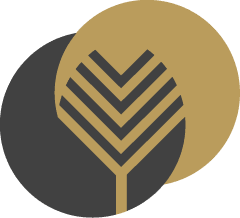
APS Interest Group
Overview
The rehabilitation model provides a way of engaging people recovering from any serious illness or injury in adaptive coping strategies. Cancer is known to have the potential to disrupt the lives of those affected. Physical impacts can include pain, fatigue, infertility and cognitive difficulties, while common psychological challenges are fear of recurrence, progression or death; depression and the loss of valued roles in family and society. Many survivors experience changes in close relationships, sexual function, and how they see themselves or experience their identity.
The rehabilitation model identifies six domains of life functioning affected by illness. In addition to physical health, relationship, social, vocational, self-worth and identity domains are affected. The client is guided to address any struggles in each of these domains systematically, with self-compassion and goal-setting, just as they would with physical rehabilitation. This model can be incorporated into various therapeutic modalities (such as ACT or CBT and other solution-focused approaches) and so is transtheoretical. It includes methods and themes central to health psychology, including encouraging an internal locus of control, working with maladaptive thinking and goal-setting.
The model is readily adapted to people from different cultures by tailoring the interventions to the individual and working with their personal losses, changes and challenges that may be culture-bound.
This webinar will guide participants in ways to add the ‘rehabilitation’ framework to assessing and understanding the psychosocial effects of illness like cancer. You will also learn how to engage your clients in methods that can rebuild personal contentment despite their illness experiences.
Learning Outcomes
Upon completion of this event, participants should be able to:
- Demonstrate familiarity with the six main areas of functioning affected by the course of an illness and its treatments
- Use this knowledge to add to their existing psychoeducation when engaging clients;
- Know how to target one functional domain at a time to assist clients be proactive in their psychosocial recovery;
- Be comfortable integrating the rehabilitation model with their existing health psychology principles, such as locus of control, flexible adaptation and goal setting.
Presenter(s)
Mr. Chris Basten
About the presenter(s)
Chris Basten is a clinical psychologist with expertise in health psychology and eating disorders. He received his masters in clinical psychology then a PhD from University of Sydney. He worked for 15 years at Westmead Hospital (Sydney) in consultation-liaison psychiatry, consulting to the various medical units of the hospital. For several years now he has focused on his own practice, consulting to an interdisciplinary surgery team and also training health professionals. He also has casual lecturer roles at universities in Sydney. His book, ‘The Art of CBT’, is popular with postgraduate university courses.
Notes
Target Audience
This event is aimed psychologists working with clients who are recovering from any serious illness or injury.
Duration of Access
This event will be recorded. The recording will be emailed to all registered within 2 weeks post event and available for viewing up to 90 days.
CPD
It is up to attendees to assess and determine how learning from this event aligns with the requirements of their learning plan. The providers accordingly do not make any representation that the event counts towards attendees’ CPD learning requirements. If an attendee determines themselves that the learning they complete aligns to their learning plan, then they can decide to count those hours towards their CPD requirements for the registration cycle.
The information in this presentation has been prepared in good faith and for educational purposes only. Therefore, the information is general in nature and should not be relied upon in the treatment of any condition and you should seek your own independent professional and/or legal advice concerning any specific issue. The APS accepts no responsibility for any errors, omissions or decisions relating to the information. The content should not be reproduced without permission or unless permitted by law.
If you are experiencing registration difficulties please contact APS Events Support.